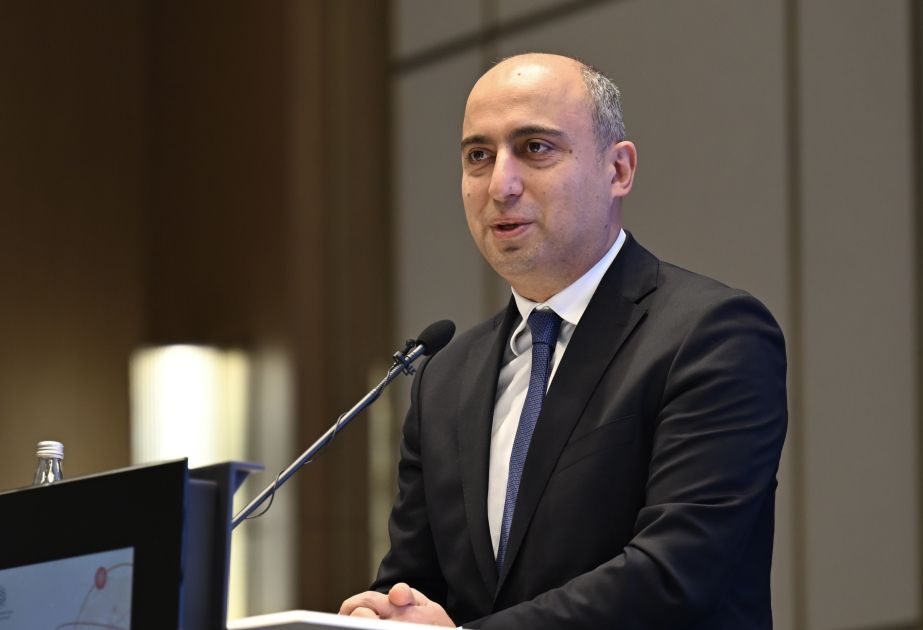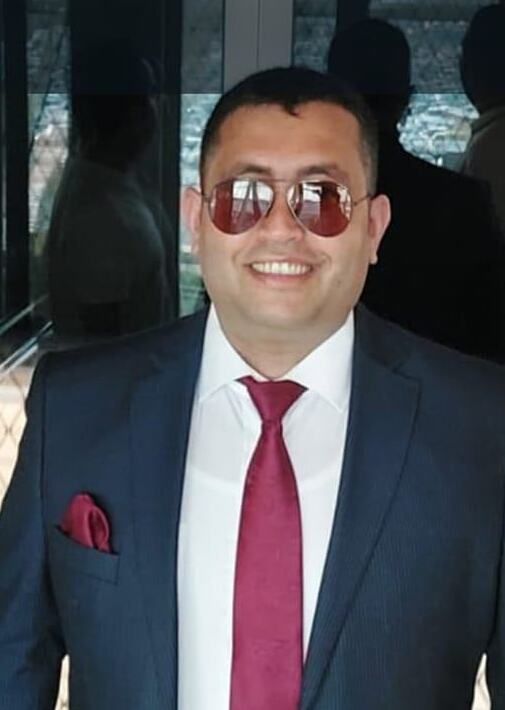Azerbaijan continues to implement various educational initiatives for foreign and local students

Azerbaijan is continuing to implement various initiatives in the education sector for both foreign and local students. One of the state's programs is the individual scholarship program, Azernews reports, citing Science and Education Minister Emin Amrullayev, as he stated at the Forum on the Internationalization of Science and Higher Education.
He noted that this program has expanded over eight years, increasing the number of scholarship recipients from 100 to 500.
“Graduates of this program currently work as leading specialists in Azerbaijan’s public, education, and private sectors. The long-term perspectives of the program indicate that investments in human capital will yield significant results. It is expected that many students will benefit from this program over the next 30-40 years,” said Amrullayev.
He added that the government aims to increase the number of students through intergovernmental student exchange programs. While the main focus in the past was sending students abroad, there is now a special emphasis on increasing the number of foreign students studying in Azerbaijan.
The minister noted that the number of foreign students in Azerbaijan has significantly increased in recent years. Currently, this figure stands at approximately 11,000, and there are plans to increase it to 21,000 in the near future.
“This is a significant step in enhancing cultural diversity in higher education institutions and promoting Azerbaijan's educational experience globally. Special programs, such as the Heydar Aliyev Scholarship, have created new opportunities for foreign students to study in Azerbaijan. This initiative shows the interest of foreign countries in the higher education opportunities available in Azerbaijan,” he added.
The minister emphasized that graduates of Azerbaijani higher education institutions are currently working in important positions in various countries around the world.
“Building on this tradition, the goal is to provide more students with high-level education and expand international cooperation in the future. Meetings held within the framework of COP29 have shown that world countries are interested in cooperating with Azerbaijani higher education institutions. Currently, intensive work is being done in this direction, and many countries are encouraging their citizens to pursue higher education in Azerbaijan.”
Integration of Azerbaijani scientists into global science and attracting foreign scientists and professors to Azerbaijan are among the important goals, as well.
Amrullayev mentioned that certain bureaucratic procedures hinder the activities of foreign scientists in Azerbaijan.
“Existing regulations should be reviewed to allow scientists to work more comfortably. Pilot projects are providing financial support to higher education institutions, but there are some bureaucratic barriers to the effective use of these funds,” he said.
Emin Amrullayev also noted that some approaches in Azerbaijan's higher education system are outdated and do not meet modern requirements.
The minister highlighted that outdated procedures and mechanisms in the education system hinder reforms.
“More effective, flexible, and results-oriented approaches should be implemented. Innovation requires both the will and legislative regulation,” he stated.
He emphasized that speeding up international integration processes, applying flexibility and innovation in the management of higher education institutions, and increasing the involvement of foreign scientists and students in Azerbaijan's scientific and educational environment are essential steps for the development of the education system. Amrullayev noted that implementing reforms will enhance both internal potential and the creation of a stronger educational environment at the international level.
Research activities play a significant role in the formation of university rankings. One of the problems in this area is the fragmented and non-consolidated nature of scientific activities. Conducting more systematic and grouped research can improve university rankings.
Amrullayev mentioned that the number of foreign students and faculty, as well as the student-to-faculty ratio, are key indicators of a university's international standing.
“Although rankings are sometimes criticized, they provide important indicators used for management decisions. Based on these indicators, universities can improve their areas of activity,” he explained.
Research in Azerbaijani universities is often fragmented, with activities distributed among many small groups and limited collaboration. The individual activities of scientists often do not impact the overall university metrics significantly.
According to the minister, solutions to this problem include uniting research under single institutes or consortia and better coordinating scientific activities at the university level.
The minister also said that the number of scientific articles and products in Azerbaijan is increasing, which shows the country's scientific potential. However, there are problems with the effective organization and presentation of scientific products, limiting the international impact of scientific articles. Scientific activities and results need better structuring and presentation. Priority should be given to enhancing the quality of output rather than quantity. New incentive mechanisms should be created to encourage local scientists to publish more articles in international scientific journals.
Amrullayev believes there is a need for increased cooperation among domestic institutions in Azerbaijan.
“Integration of research projects and educational programs is essential. New funding mechanisms, grant programs, and sponsorship opportunities are proposed. These measures can accelerate the development of research and higher education,” he said.
Development in higher education occurs gradually. Expecting radical changes in a short period is unrealistic.
The minister noted that if annual progress is ensured, Azerbaijani higher education can achieve higher positions globally within 10-20 years.
“If there are any quick and effective solutions, open platforms should be created to discuss these ideas. Efforts should be made to achieve better results each year than the previous one. Goals should be realistic and aligned with available resources and time. Local solutions should be developed by leveraging the successful experiences of other countries. Closer cooperation between government agencies, universities, and scientific institutions should be ensured. This approach presents a comprehensive plan to gradually develop the Azerbaijani higher education system to meet international standards,” the minister concluded.
Here we are to serve you with news right now. It does not cost much, but worth your attention.
Choose to support open, independent, quality journalism and subscribe on a monthly basis.
By subscribing to our online newspaper, you can have full digital access to all news, analysis, and much more.
You can also follow AzerNEWS on Twitter @AzerNewsAz or Facebook @AzerNewsNewspaper
Thank you!

